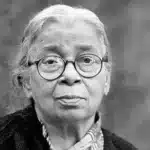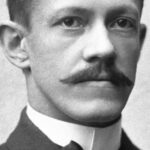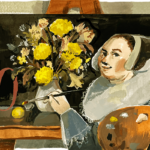Erik Axel Karlfeldt (20 July 1864 – 8 April 1931) was a Swedish poet and writer who won the Nobel Prize in Literature in 1931.
Life and Career
He was born on 20 July 1864, in Avesta, Sweden. He received his early education in his hometown of Karlbo and later attended secondary school in Vasteras, Sweden. After finishing his secondary education, he attended the University of Uppsala where he studied literature, history, and languages, graduating with a degree in philology in 1895.
While at university, he became involved in student societies and literary circles, which allowed him to develop his interest in poetry and literature. He also became a member of the Swedish Academy in 1904, which was a significant achievement for a poet at the time. After completing his studies, Karlfeldt worked as a teacher and a school inspector for several years before dedicating himself full-time to writing poetry. His education in philology and his interest in linguistics played an important role in his poetry, as he often incorporated traditional Swedish folk language and dialects into his work.
His early collections of poetry, such as “Vildmarks- och kärleksvisor” (Wilderness and Love Songs) and “Fridolins visor” (Fridolin’s Songs), are notable for their use of Swedish folk themes and language. These collections established Karlfeldt as a leading figure in the Swedish literary scene. Later in his career, Karlfeldt explored more complex themes and experimented with new forms of poetry. His collection “Flora och Pomona” (Flora and Pomona) is considered one of his most accomplished works and showcases his skill at creating vivid images and capturing the beauty of nature. His other famous works include the collection “Fridolins visor” (Fridolin’s Songs), as well as the epic poem “Vildmarks- och kärleksvisor” (Wilderness and Love Songs).
In addition to his poetry, Karlfeldt also wrote critical essays and prose works, including a biography of the Swedish poet Gustaf Froding. He was also an important figure in Swedish literary circles, serving as the permanent secretary of the Swedish Academy from 1912 until his death. He died on 8 April 1931, in Stockholm, Sweden.
Award and Legacy
He was awarded the Nobel Prize in Literature in 1931, just a few months before his death. The award was given in recognition of his significant contributions to Swedish literature and his ability to capture the essence of Swedish nature and folklore in his poetry.
His legacy has had a lasting impact on Swedish literature and poetry. He is widely regarded as one of the most important and influential Swedish poets of the 20th century, and his work continues to be celebrated and studied today. Karlfeldt’s use of traditional Swedish folk themes and language helped establish a uniquely Swedish literary tradition and paved the way for future generations of Swedish writers. His emphasis on the beauty of nature and the Swedish landscape also had a significant impact on the country’s cultural identity and helped create a sense of national pride and unity.
Overall, Erik Axel Karlfeldt’s contributions to Swedish literature and poetry have had a profound and lasting impact on the country’s cultural heritage and continue to inspire and influence writers and readers today.












